Top 15 Greatest Scientists Of All Time
♦ Top 10 Ugliest Buildings In The US, But Very Famous
♦ Top 10 Most Famous Chemists Of All Time
 |
| Top 15 Greatest Scientists Of All Time. Photo KnowInsiders |
| Contents |
Scientists are very important people to humanity. Thanks to their inventions and research, the world has developed into what it is today. Not all research has immediate results, but it needs to go through a long process, requiring sacrifice and time to be recognized. The modern life we live in today is created thanks to inventions of famous inventions of the great scientists in the past.
Top 15 Greatest Scientists Of All Time
1. Aristotle
Aristotle, born in 384 BC in Stagira, was a great philosopher of ancient Greece who had vast knowledge in various fields. He made great contributions to the physics, poetry, zoology, logic, rhetoric, politics, government, ethics, and biology of ancient human civilization.
| What are Aristotle’s most outstanding inventions? Aristotle is known for inventing the scientific method of analysis, which can be applied to multiple fields of study. He also is responsible for breaking fields of knowledge into categories and subcategories, such as psychology, biology, politics, logic, chemistry, and botany. His contributions to the different facets of theoretical study can be broken into three different groups known as speculative philosophy, natural philosophy, and practical philosophy. |
2. Sir Isaac Newton
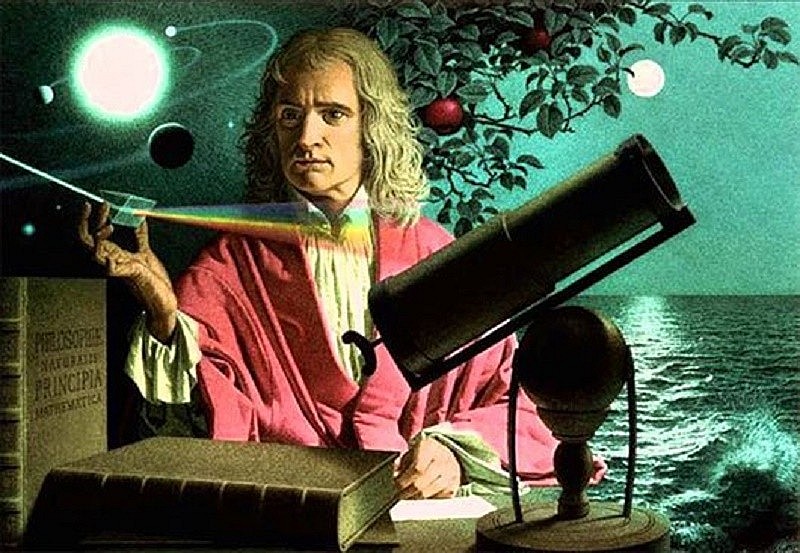 |
| Sir Isaac Newton |
The inscription on Sir Isaac Newton's grave at Westminster Abbey alludes to even larger wonders, even though you may only remember him as "that apples-and-gravity guy" (1642-1727). The bones within are not only those of a great man, but the bones of the greatest man who ever lived, according to the engraved Latin script.
It reads, "Mortals delight that such and such a wonderful adornment of the human race has existed!"
That level of praise is absurd, even for a eulogy, you have to concede, at least at first.
Newton was the son of an uneducated farmer and a famous expert in astronomy, chemistry, mathematics, physics, and religion when he passed away. He was a real polymath. He investigated issues as minute as rug-peeing kittens and as large as the ultimate goal of humans in the cosmos because of his insatiable curiosity.
3. Galileo Galilei
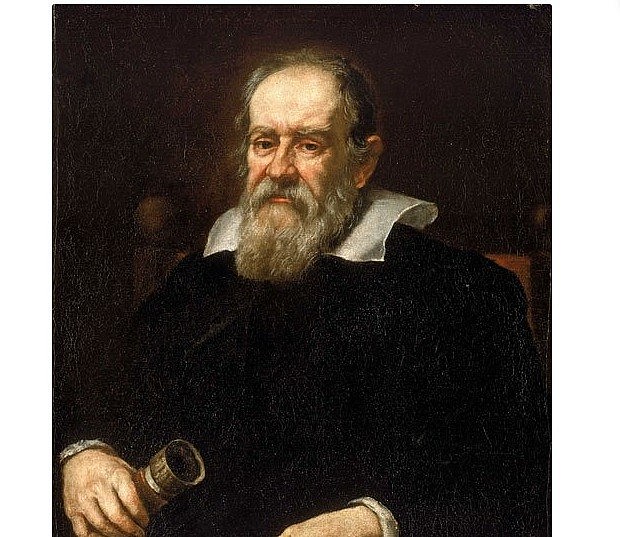 |
| Galileo Galilei |
Galileo di Vincenzo Bonaiuti de' Galilei, also known as Galileo (1564-1642, Italy), is considered one of the greatest contributors to the development of science. Galileo was the first person who could help science to get out of the way of Aristotle. He was a physicist, astronomer, and philosopher. And his most famous contribution is the invention of the telescope.
He is also considered the father of astronomy, the father of physics, and the father of science. He was born to a mathematician to his father Vincenzo Galilei and mother Giulia Ammannati in Italy, so he was exposed to mathematics at an early age. He was the first scientist to demonstrate quantitatively that the results obtained were based on mathematics. However, he had to endure a lot of criticism from public opinion for his theory.
4. Charles Robert Darwin
Charles Robert Darwin (1809-1882, United Kingdom) was a prominent biologist and one of the world's most controversial scientists. He authored "The Origin of Species by Means of Natural Selection", the book that immortalized Darwin in world history. This book changed the course of basic science.
Darwin traveled to different parts of the world and conducted extensive research. His theory of the origin of man caused widespread controversy. Darwin said that man has evolved through many changes and that life is one of the important factors in the development of the animal world. The results of Darwin's research were still hotly debated among his supporters and opponents at the time. However, truth is unbreakable, he has achieved certain achievements such as the Royal Society Membership Award, the Copley Medal, the Wollaston Medal, the Royal Medal.
5. Albert Einstein
Albert Einstein (1879-1955) was the great scientist of the twentieth century and the most remarkable physicist ever. It has been said that he was disabled during his childhood when he could not speak until the age of three and could not read until he was eight. The first person on the list is the physicist Albert Einstein, he was born into a family of Jewish descent. He was a German theoretical physicist, considered the father of modern physics and also the developer of the general theory of relativity.
| Albert Einstein became the winner of the prestigious prize for his contributions to Physics. He received the 1921 Nobel Prize in Physics for his explanation of light energy and for his great research in Physics. In addition to this outstanding achievement, he also won the following awards: the Matteucci Medal (1921), the Copley Medal (1925), the first Max Planck Medal (1929), The Franklin Institute Awards 1935: Albert Einstein. His theory of relativity is considered a revolutionary development of Physics. |
6. Thomas Edison
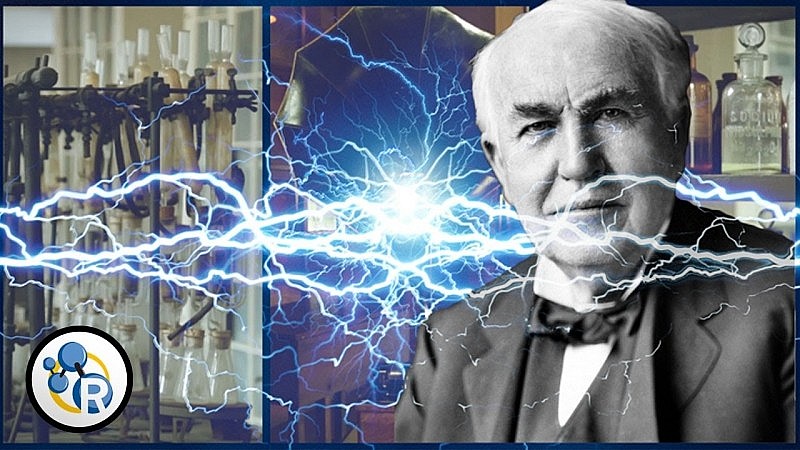 |
| Thomas Edison |
Thomas Edison (1847-1931, USA) is a great inventor because he has more than 1,000 patents and his inventions in various fields are used in our daily life. His first invention was a telegraph, but the outstanding invention that brought Edison to fame was the phonograph in 1877. In 1880, Edison registered a patent. And since then, it's not too exaggerated to say that humanity has turned to a new page. Great influence on life and the world in the twentieth century.
In his early life he was said to have a learning disability and he could not read until he was twelve years old and he later admitted that he had become deaf after towing a car. fire with his ears. Thomas Edison first became known to the world when he invented the telegraph system. He was also the one who made great contributions to the invention of the telephone microphone and the incandescent light bulb.
READ MORE: Top 10 Mysteries of Human Behaviour That Science Fails to Explain
7. Alessandro Giuseppe Antonio Anastasio Volta
Count Alessandro Giuseppe Antonio Anastasio Volta (1745-1827, Italy) was an Italian physicist and he is known for his contributions to the development of the electric battery and the discovery of methane gas. This benevolent scientist is also considered one of the founders of the electric age. His parents sent him to school with the hope that he would become a lawyer.
As a prominent person in the physical sciences, he wrote a book called "Del modo di rendere sensibilissima la più debole eletricità sia naturale, sia artificiale”.
8. Louis Pasteur
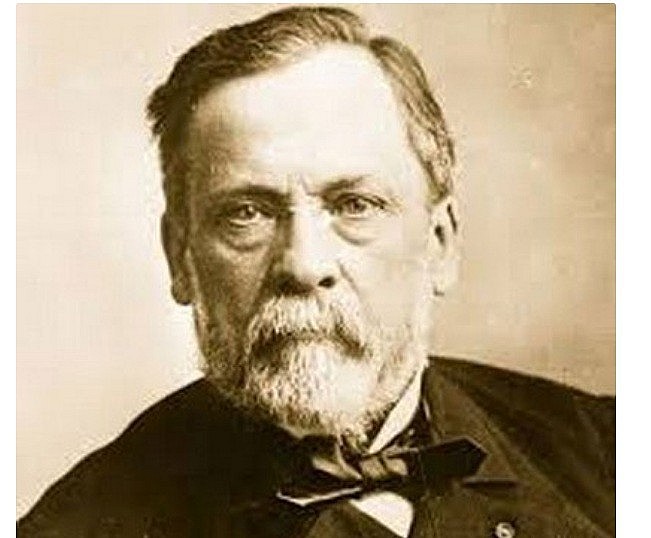 |
| Louis Pasteur |
Next on the list is a famous French scientist – Louis Pasteur (1822-1895, France). He was one of the greatest contributors to the medical field when he first introduced the theory of pathogens. This is considered the basis of current microbiology. His field is microbiology. It is interesting that he never officially studied Medicine, but his major is Literature and Mathematics. Later, he studied both Chemistry and Physics.
READ MORE: How Old Is The Earth In Science, Bible
9. Sir Jagadish Chandra Bose
He was the first to demonstrate that plants have emotions as well. One year before Marconi patented wireless telegraphy, he came up with the idea.
An accomplished Indian scientist named Jagdish Chandra Bose. He was the first to demonstrate that metals and plants may experience emotion.
In Mymensingh, Jagdish Chandra Bose was born on November 30, 1858. (now in Bangladesh). Deputy Magistrate Bhagabanchandra Bose was his father. Early schooling for Jagadish Chandra Bose was received in Bengali at a local school. Jagadish Chandra Bose attended St. Xavier's School and College after being sent to Calcutta in 1869 to study English. He excelled in school. In 1879, he earned a B.A. in physical sciences.
10. Stephen Hawking
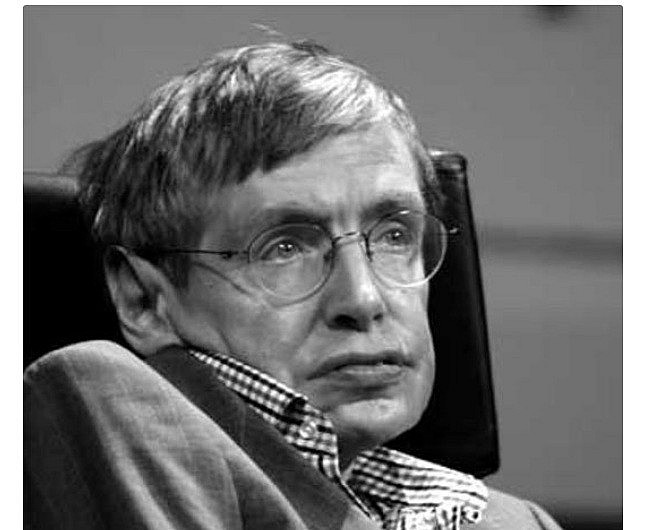 |
| Stephen Hawking |
Stephen Hawking‘s discoveries
Singularities
Hawking published a ground-breaking paper on singularities in 1970 in relation to the black hole (a celestial object that was created when a big star collapsed and is thought to contain the universe's densest stuff). An area or point in a certain space and time known as a singularity is one where gravity forces matter, a component of the cosmos with mass, to have an infinite density (unlimited mass per unit volume). This hypothesis, often referred to as the Hawking Singularity Theorem, states that gravity causes singularities, from which a black hole arises and prevents light from escaping.
Laws of Black Hole mechanics
The Black Hole Area Theorem, also referred to as the law of Black Hole mechanics, was created by Hawking in 1971–1972. According to the rule, the black hole's overall surface area can never decrease. This is due to the fact that although the black hole produces particles over time, the rate at which it does so is incredibly low—far too low to be noticed. As a result, there is no change in the black hole's size.
Cosmic Inflation theory
After conducting a thorough examination, Hawking discovered in 1982 that the universe had been expanding exponentially since the Big Bang (an explosion that gave rise to the universe). He was actually the first theorist to compute quantum fluctuations—random, transient changes in the amount of energy in a given point in space. His research showed that this expansion could eventually lead to the dispersion of galaxies.
Model of the Universe’s Wave Function
Hawking created a second theory regarding the origin of evaluation in the year that followed the Cosmic Inflation theory. In fact, this theory, which asserts that time and space were not present prior to the Big Bang explosion, is a direct continuation of the Cosmic Inflation idea. The idea of the universe's genesis is therefore completely meaningless.
Top-Down Theory on Cosmology
In 2006, Hawking's theory on top-down cosmology demonstrated that the universe has a variety of potential initial states rather than a single unique initial state. Modern physicists actually trace the histories of the cosmos backwards on the basis of this idea.
11. Marie Curie
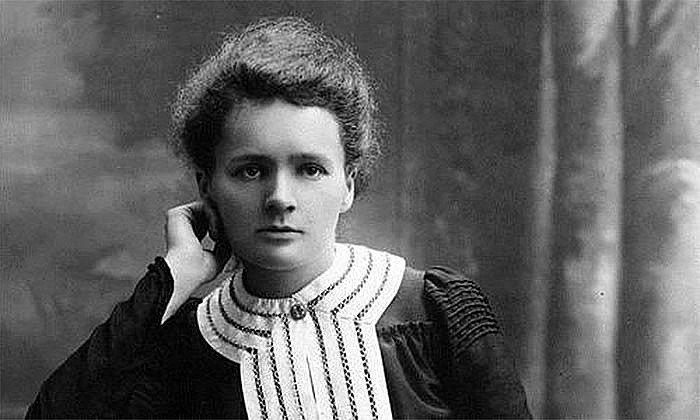 |
| Marie Curie |
Marie Skłodowska Curie (1867-1934) was a Polish-French physicist and chemist, known for her pioneering work on radioactivity. She was the first person to receive two Nobel Prizes in two different fields, Physics and Chemistry. Marie Curie was the first female university lecturer at the University of Paris (Sorbonne), and in 1995 her body was interred at the Panthéon in Paris for her great contribution to humanity.
In 1895, she married Pierre Curie. They made miracles with extraordinary research. In 1896, Marie Curie discovered radioactivity (found by the properties of X-rays) and devised a technique to isolate isotopes. At the same time, she and her husband Pierre Curie discovered the radioactive elements radium and polonium. Unfortunately, her husband, Pierre Curie, passed away in 1906.
12. Nikola Tesla
Nikola Tesla (1856-1943) was a Serb-born American inventor, physicist, mechanical engineer, and electrical engineer. He was born in Smiljan then in the Austrian Empire, later became a US citizen around the age of 30. Tesla is known for many revolutionary contributions in the fields of electricity and magnetism during the late 19th century. It can be said that the inventor Tesla is the premise for the current 4.0 era, his achievements are handed down to serve as the foundation for the next generation to develop and improve.
Tesla's inventions and theoretical work formed the basis of AC power generation systems, including multiphase power distribution systems and AC motors, helping to create the Second Industrial Revolution. two. Tesla has patented an arc lighting system. Tesla's new system has received more attention in the newspapers and technical forums for its advanced features.
13. Otto Hahn
Otto Hahn, a German chemist and researcher, is regarded as one of history's most important nuclear chemists. In the domains of radiochemistry and radioactivity, he was a pioneer. Hahn, who is also referred to as "the father of nuclear chemistry," spoke strongly against the use of nuclear weapons following World War II. He had also firmly opposed the Nazis' persecution of Jews as a prominent citizen of the Federal Republic of Germany.
Actually, the basic chemical process involved in a nuclear reaction—nuclear fission—had been discovered by Hahn and Strassmann. The atomic bomb and nuclear energy were both indirectly developed because to this renowned discovery. Hahn won the Nobel Prize in 1944 for his discovery of nuclear fission. He carried with his research and continued to develop and separate new elements via nuclear fission.
14. Michael Faraday
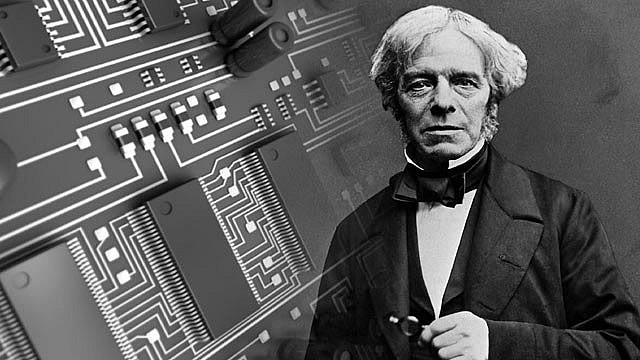 |
| Michael Faraday |
Michael Faraday (1791-1867) was an English physicist and chemist who made contributions to the fields of electromagnetism and electrochemistry. Faraday studied the electromagnetic field around a conductor with a direct current flowing through it. In researching these problems, Faraday established the basic concept of the electromagnetic field in physics, which was later developed by James Maxwell. He also discovered electric induction, diamagnetism, and the law of electrolysis.
He demonstrated that magnetism could act on rays of light. Michael Faraday's inventions of devices with rotating electric fields laid the groundwork for electric motor technology, and he is largely credited with making electricity available to industry.
15. Alexander Fleming
Alexander Fleming (1881-1955, England) was a Scottish physician, biologist and pharmacologist. He is considered to be the one who ushered in the era of antibiotic use in medicine. Fleming passed the exam where he wanted to study. He was always at the top of his class in all subjects, especially immunology. Upon graduating in 1906, he was hired as an assistant to Almroth Wright, a pioneer in the field of vaccines.
He was awarded the Nobel Prize in Medicine in 1945 with Ernst Boris Chain and Howard Walter Florey for the discovery and isolation of penicillin - considered the first antibiotic in the treatment of infections. In addition, to transmit his source of knowledge to mankind, he wrote the book: Private Capital Flows to Developing Countries and Their Determination: Historical Perspectives, Recent Experience, and Future Prospects.
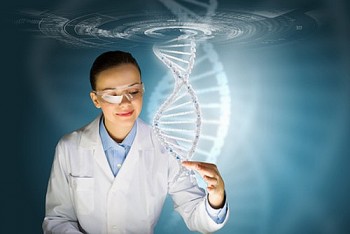 Top 10 Countries in the World for Scientific Research 2023/24 Top 10 Countries in the World for Scientific Research 2023/24 The Ranking of the Top 10 most advanced countries in science is based on data from the World Bank and from the SCImago National Science ... |
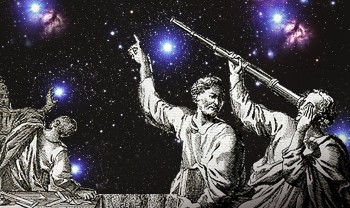 Why is Astrology Still Popular Even Though It's Not A Science? Why is Astrology Still Popular Even Though It's Not A Science? Both astrology and astronomy both look to the sky to make predictions. They may sound similar at first, but there are important differences between them. |
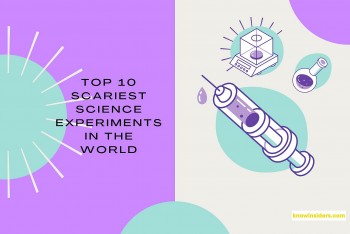 Top 10 Scariest Science Experiments In The World History Top 10 Scariest Science Experiments In The World History Two-head dog, letting insects grow in human brain, weighing human soul: All sound crazy but they were real experiments conducted by scientists. |
























